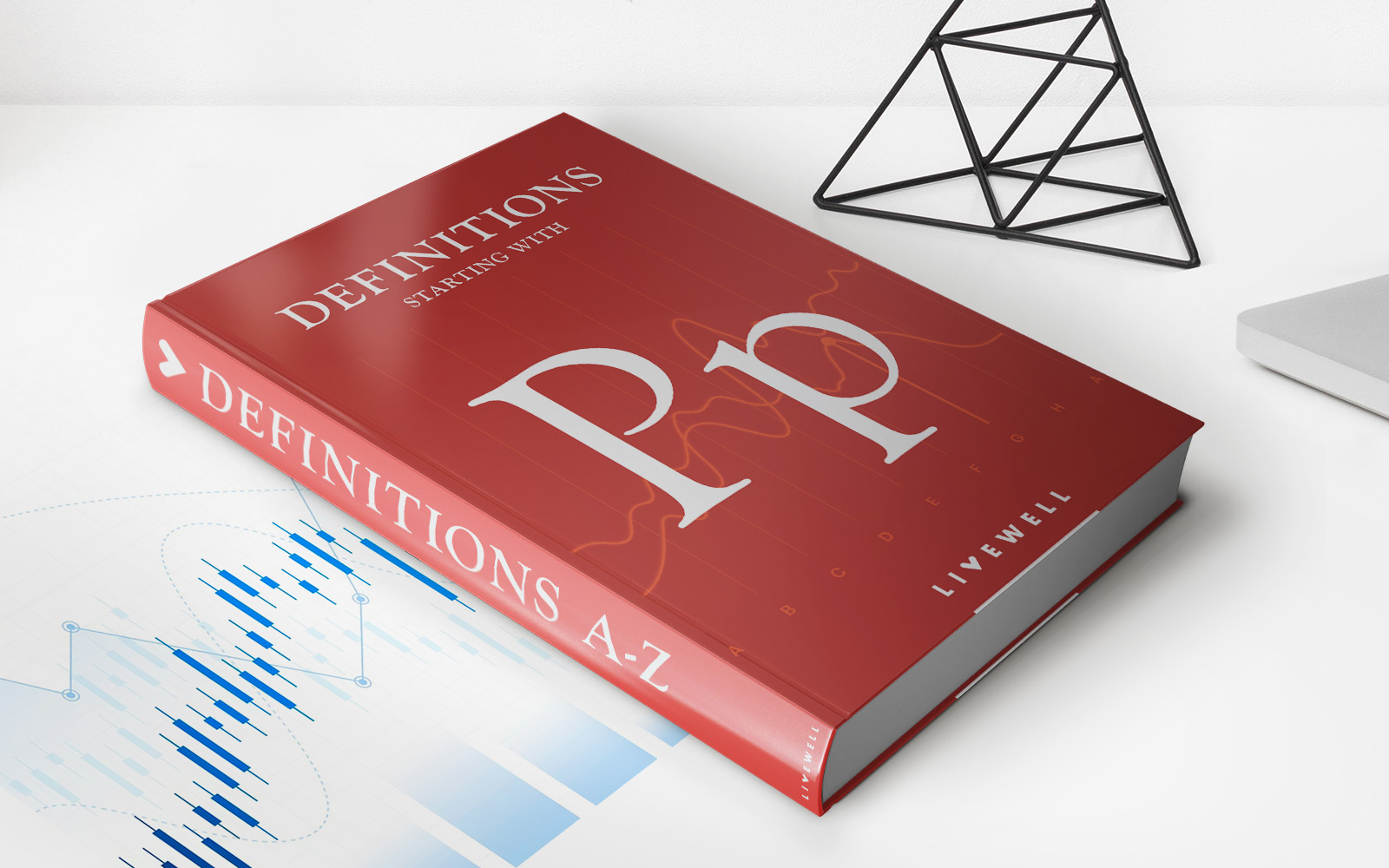

Finance
Which Bookkeeping Certification Is The Best
Modified: February 21, 2024
Discover the top bookkeeping certification options in the finance industry and choose the best one to boost your career prospects and expertise.
(Many of the links in this article redirect to a specific reviewed product. Your purchase of these products through affiliate links helps to generate commission for LiveWell, at no extra cost. Learn more)
Table of Contents
- Introduction
- Importance of Bookkeeping Certification
- Overview of Different Bookkeeping Certifications
- Certified Bookkeeper (CB)
- Certified Public Bookkeeper (CPB)
- Accredited Business Accountant/Advisor (ABA)
- Certified Management Accountant (CMA)
- Certified Financial Services Auditor (CFSA)
- Factors to Consider When Choosing the Best Bookkeeping Certification
- Industry Recognition and Credibility
- Scope and Depth of Knowledge
- Cost and Time Commitment
- Career Opportunities and Advancement
- Conclusion
Introduction
Bookkeeping is a crucial aspect of any business, ensuring accurate tracking of financial transactions and facilitating informed decision-making. As the demand for skilled bookkeepers continues to rise, professionals in this field are seeking ways to stand out from the competition. One way to do so is by obtaining a bookkeeping certification.
A bookkeeping certification not only validates your expertise but also enhances your credibility and marketability in the finance industry. It demonstrates your commitment to professionalism and upholds the highest standards of bookkeeping practices. However, with various bookkeeping certifications available, it can be challenging to determine which one is the best fit for your career goals.
In this article, we will explore the different bookkeeping certifications available and provide insights into how to choose the best certification for your needs. Whether you are a seasoned bookkeeper looking to upgrade your skills or a newcomer seeking to enter the field, this guide will help you make an informed decision.
Before diving into the specifics of each certification, it is crucial to understand the importance of obtaining a bookkeeping certification in today’s competitive job market. A certification serves as a testament to your knowledge and proficiency in the field, giving employers confidence in your abilities. It also demonstrates your commitment to continuous learning and professional development. Employers often prefer certified bookkeepers over non-certified individuals, as they bring additional value and expertise to the organization.
Beyond improving job prospects, a bookkeeping certification opens up various opportunities for advancement within the industry. With the right credentials, you may qualify for higher-level positions such as a senior bookkeeper, accounting manager, or financial analyst. Additionally, certification can lead to increased earning potential, as certified bookkeepers tend to command higher salaries compared to their non-certified counterparts.
So, if you aspire to excel in the field of bookkeeping and want to amplify your career prospects, a bookkeeping certification is a wise investment of time and effort. In the following sections, we will dive into the details of several popular bookkeeping certifications, helping you understand their benefits and choose the one that aligns with your career goals.
Importance of Bookkeeping Certification
A bookkeeping certification holds immense significance in today’s competitive job market. It not only validates your skills and knowledge but also provides numerous benefits that can enhance your career prospects. Here are some key reasons why obtaining a bookkeeping certification is essential:
- Recognition and Credibility: A bookkeeping certification demonstrates your professionalism and expertise in the field. Employers see certified bookkeepers as trustworthy individuals who adhere to the highest standards of accuracy and ethics. It provides you with instant credibility among potential employers and clients, increasing your chances of securing job opportunities and acquiring new clients.
- Competitive Advantage: In a saturated job market, having a bookkeeping certification sets you apart from other candidates. Employers often prioritize certified bookkeepers over non-certified applicants when making hiring decisions. It showcases your commitment to learning and staying updated with industry practices, giving you a competitive edge in job interviews.
- Career Advancement: Obtaining a bookkeeping certification opens doors to various career advancement opportunities. With the right credentials, you may qualify for higher-level positions or take on additional responsibilities within your current role. Certifications such as the Certified Public Bookkeeper (CPB) or Certified Management Accountant (CMA) can lead to promotions and higher salaries, allowing you to progress in your career more rapidly.
- Increased Earning Potential: Certified bookkeepers often earn higher salaries compared to their non-certified counterparts. Employers recognize the value of certification and are willing to invest in qualified professionals who can contribute to the financial success of their organization. Certification provides leverage in salary negotiations and can lead to better compensation packages and benefits.
- Continued Professional Development: The process of obtaining a bookkeeping certification involves comprehensive training and ongoing professional development. This enables you to stay updated with the latest industry trends, regulations, and best practices. Continuously honing your skills and expanding your knowledge not only benefits your own career but also ensures that you provide the highest level of service to your clients or employer.
Overall, a bookkeeping certification is a testament to your commitment to excellence and dedication to your profession. It not only enhances your marketability but also instills confidence in employers and clients, positioning you as a trusted and knowledgeable bookkeeping professional. Whether you are starting your career or looking to advance in the field, a bookkeeping certification can significantly boost your chances of success.
Overview of Different Bookkeeping Certifications
There are several bookkeeping certifications available that cater to different areas of specialization and career goals. Here, we provide a brief overview of five popular bookkeeping certifications:
- Certified Bookkeeper (CB): The Certified Bookkeeper designation is offered by the American Institute of Professional Bookkeepers (AIPB). This certification validates proficiency in essential bookkeeping skills such as journal entry, payroll, and financial statement preparation. It requires passing an examination covering topics like adjusting entries, depreciation, and internal controls.
- Certified Public Bookkeeper (CPB): The Certified Public Bookkeeper certification is granted by the National Association of Certified Public Bookkeepers (NACPB). It is widely recognized and focuses on bookkeeping for small to medium-sized businesses. To obtain this certification, candidates must have at least one year of bookkeeping experience, pass an examination, and adhere to a strict code of ethics.
- Accredited Business Accountant/Advisor (ABA): The Accredited Business Accountant/Advisor designation is offered by the Accreditation Council for Accountancy and Taxation (ACAT). While not specific to bookkeeping, this certification covers a broader range of accounting and financial skills. It requires passing exams in areas such as accounting principles, taxation, and financial statement analysis.
- Certified Management Accountant (CMA): The Certified Management Accountant certification is awarded by the Institute of Management Accountants (IMA). It focuses on advanced accounting and financial management skills relevant to managerial roles. To become a CMA, candidates must have a bachelor’s degree, pass a rigorous examination, and fulfill continuing education requirements.
- Certified Financial Services Auditor (CFSA): The Certified Financial Services Auditor certification is offered by the Institute of Internal Auditors (IIA). Though not exclusively focused on bookkeeping, this certification is valuable for professionals involved in auditing financial services. It covers topics like risk assessment, internal control, and regulatory compliance.
Note that these are just a few examples of bookkeeping certifications available in the market. Each certification has its own requirements, examination process, and focus areas. It is important to research and choose the certification that aligns with your career goals and interests.
In the next section, we will discuss important factors to consider when choosing the best bookkeeping certification for your needs.
Certified Bookkeeper (CB)
The Certified Bookkeeper (CB) designation is offered by the American Institute of Professional Bookkeepers (AIPB). It is a highly respected certification that validates the proficiency of bookkeepers in essential bookkeeping skills. Here is an overview of the CB certification:
- Requirements: To become a Certified Bookkeeper, candidates must meet the following requirements:
- Experience: A minimum of two years of full-time or part-time bookkeeping or accounting experience is required.
- Examination: Candidates need to pass a comprehensive examination covering topics such as adjusting entries, bank reconciliation, payroll, depreciation, and internal controls.
- Ethics: Candidates must agree to abide by the AIPB’s Code of Ethics and Professional Conduct.
- Benefits: Earning the CB certification brings several benefits to bookkeepers, including:
- Validation of Skills: The CB designation demonstrates to employers and clients that you have a solid foundation in bookkeeping and are committed to maintaining high professional standards.
- Industry Recognition: The CB designation is well-respected in the bookkeeping field and enhances your credibility as a qualified and competent professional.
- Enhanced Career Advancement: The CB certification can open up new opportunities for career growth and advancement, such as senior-level bookkeeping positions or supervision of other bookkeepers.
- Continuing Professional Development (CPD): Certified Bookkeepers are required to complete a certain number of CPD credits each year, which ensures that they stay updated with the latest industry trends and practices.
- Examination Format: The CB examination consists of multiple-choice questions and is conducted online. The exam can be taken at any time within a specified period, and candidates have three hours to complete it. The passing score for the exam is 75%.
- Maintaining Certification: To maintain the CB certification, professionals must fulfill the following requirements:
- CPD Credits: Certified Bookkeepers are required to earn a minimum of 20 Continuing Professional Development (CPD) credits every year.
- Membership Renewal: Membership with the AIPB must be renewed annually.
- Code of Ethics: Certified Bookkeepers must adhere to the AIPB’s Code of Ethics and Professional Conduct throughout their certification period.
The CB certification is ideal for bookkeepers who want to demonstrate their expertise and commitment to professionalism. It provides a solid foundation in essential bookkeeping skills and offers opportunities for career advancement. If you have a few years of experience in bookkeeping and seek industry recognition and validation, the Certified Bookkeeper (CB) certification may be the right choice for you.
Certified Public Bookkeeper (CPB)
The Certified Public Bookkeeper (CPB) certification is offered by the National Association of Certified Public Bookkeepers (NACPB). It is a prestigious certification that focuses on bookkeeping for small to medium-sized businesses. Let’s take a closer look at the CPB certification:
- Requirements: To become a Certified Public Bookkeeper, candidates must meet the following requirements:
- Education and Experience: There are no specific education requirements, but candidates must have at least one year of full-time or part-time bookkeeping experience.
- Examination: Candidates need to pass the CPB examination, which covers topics such as bookkeeping fundamentals, payroll, financial statements, and business taxes.
- Code of Ethics: CPB candidates must agree to comply with the NACPB’s Code of Professional Conduct.
- Benefits: The CPB certification offers several advantages to bookkeepers, including:
- Expertise in Small Business Bookkeeping: The CPB designation focuses on bookkeeping for small and medium-sized businesses, providing specialized knowledge and skills required to effectively manage their financial records.
- Recognition and Credibility: The CPB certification enhances your professional credibility and distinguishes you as a qualified bookkeeper who is committed to maintaining the highest standards of practice.
- Career Opportunities: Earning the CPB certification can open up a wide range of career opportunities, including bookkeeping positions in accounting firms, small businesses, and non-profit organizations.
- Continual Learning: Certified Public Bookkeepers are required to complete annual continuing education to stay updated with the latest industry developments and best practices.
- Examination Format: The CPB examination consists of multiple-choice questions and is administered online. The exam covers various bookkeeping topics and has a passing score of 70%. Candidates have three hours to complete the exam.
- Maintaining Certification: To maintain the CPB certification, professionals must fulfill the following requirements:
- Continuing Education: Certified Public Bookkeepers must complete 24 hours of continuing education credits every three years to keep their knowledge and skills up to date.
- Membership Renewal: Membership with the NACPB must be renewed annually.
- Code of Ethics: CPBs must adhere to the NACPB’s Code of Professional Conduct for the duration of their certification.
The CPB certification is ideal for bookkeepers who specialize in small and medium-sized businesses and wish to showcase their expertise in this area. It offers recognition, credibility, and numerous career opportunities. If you have experience in bookkeeping for smaller organizations and want to strengthen your skills and marketability, the Certified Public Bookkeeper (CPB) certification may be the perfect fit for your career aspirations.
Accredited Business Accountant/Advisor (ABA)
The Accredited Business Accountant/Advisor (ABA) certification is offered by the Accreditation Council for Accountancy and Taxation (ACAT). Although not specific to bookkeeping, this certification covers a broader range of accounting and financial skills. Let’s delve deeper into the ABA certification:
- Requirements: To become an Accredited Business Accountant/Advisor, candidates must meet the following requirements:
- Education and Experience: There are no specific educational requirements, but candidates must have at least two years of related experience in accounting, bookkeeping, or a related field.
- Examination: Candidates must pass the ABA examination, which assesses proficiency in areas such as accounting principles, taxation, financial statement preparation and analysis, and business ethics.
- Code of Ethics: ABA candidates must agree to abide by the ACAT’s Code of Professional Ethics.
- Benefits: The ABA certification offers several advantages to professionals working in the accounting and financial field, including:
- Comprehensive Skill Set: The ABA certification provides a broader understanding of accounting principles and practices, allowing you to offer a wide range of services to clients or employers.
- Increased Professional Value: The ABA designation enhances your professional profile and distinguishes you as a well-rounded accounting professional capable of handling various financial responsibilities.
- Opportunities for Growth: Earning the ABA certification can open doors to higher-level accounting positions, financial management roles, or even starting your own accounting practice.
- Continuing Education: Accredited Business Accountants/Advisors must participate in ongoing professional development to stay current with changing regulations and industry trends.
- Examination Format: The ABA examination consists of multiple-choice questions and is administered online. It covers various accounting topics and has a passing score of 70%. Candidates have three hours to complete the exam.
- Maintaining Certification: To maintain the ABA certification, professionals must fulfill the following requirements:
- Continuing Education: Accredited Business Accountants/Advisors must complete a specified number of continuing education hours annually to stay updated with industry advancements and maintain their knowledge and skills.
- Membership Renewal: Membership with the ACAT must be renewed annually.
- Code of Ethics: ABAs must adhere to the ACAT’s Code of Professional Ethics throughout their certification period.
The ABA certification is geared towards professionals seeking a broader understanding of accounting principles and looking to provide comprehensive financial services to their clients or employers. It offers a diverse skill set and opportunities for career growth in various accounting and financial roles. If you have a background in accounting and want to expand your expertise beyond bookkeeping, the Accredited Business Accountant/Advisor (ABA) certification may be the right choice for you.
Certified Management Accountant (CMA)
The Certified Management Accountant (CMA) certification is awarded by the Institute of Management Accountants (IMA). It focuses on advanced accounting and financial management skills relevant to managerial roles. Let’s explore the CMA certification in more detail:
- Requirements: To become a Certified Management Accountant, candidates must meet the following requirements:
- Education: A bachelor’s degree from an accredited institution is required. However, candidates can also pursue the CMA certification while in their final year of a bachelor’s program.
- Examination: Candidates must pass the two-part CMA exam, which covers topics such as financial reporting, planning, analysis, control, and decision-making.
- Experience: Candidates need to have at least two years of professional experience in management accounting or financial management (this requirement can be fulfilled before or after passing the exam).
- Code of Ethics: CMA candidates must agree to abide by the IMA’s Statement of Ethical Professional Practice.
- Benefits: The CMA certification offers numerous benefits for professionals interested in management accounting and financial management careers:
- Expertise in Managerial Accounting: The CMA designation equips you with advanced skills in management accounting, enabling you to provide valuable insights into financial planning, analysis, and decision-making within organizations.
- Global Recognition: The CMA certification is globally recognized and respected, opening up opportunities for international career advancement and mobility.
- Career Advancement: Earning the CMA certification can lead to enhanced career opportunities, such as financial analyst, financial manager, controller, or even executive-level positions.
- Salary Potential: CMAs typically enjoy higher earning potential due to their specialized skills and expertise in management accounting.
- Continual Learning: Certified Management Accountants are required to maintain their knowledge and skills through ongoing continuing education to stay abreast of emerging trends and practices.
- Examination Format: The CMA certification exam consists of two parts: Part 1 covers financial planning, performance, and analytics, while Part 2 focuses on strategic financial management. Each part consists of multiple-choice questions and essays. Candidates have three hours to complete each part of the exam.
- Maintaining Certification: To maintain the CMA certification, professionals must fulfill the following requirements:
- Continuing Education: Certified Management Accountants must complete a specified number of continuing professional education (CPE) hours annually to stay current with industry practices and advancements.
- Membership Renewal: Membership with the IMA must be renewed annually.
- Code of Ethics: CMAs must adhere to the IMA’s Statement of Ethical Professional Practice throughout their certification period.
The CMA certification is ideal for professionals who aim to specialize in managerial accounting and financial management. It offers advanced skills, global recognition, and opportunities for career advancement. If you have a bachelor’s degree in accounting or a related field and aspire to excel in management accounting roles, the Certified Management Accountant (CMA) certification is a valuable credential to consider.
Certified Financial Services Auditor (CFSA)
The Certified Financial Services Auditor (CFSA) certification is offered by the Institute of Internal Auditors (IIA). While the CFSA certification is not exclusively focused on bookkeeping, it is valuable for professionals involved in auditing financial services. Let’s explore the CFSA certification in more detail:
- Requirements: To become a Certified Financial Services Auditor, candidates must meet the following requirements:
- Education and Experience: Candidates must possess a bachelor’s degree or higher education in a relevant field and have at least two years of work experience in a financial services audit role or a related field.
- Examination: Candidates must pass the CFSA examination, which covers topics such as financial services auditing, risk assessment, internal controls, and regulatory compliance.
- Code of Ethics: CFSA candidates must agree to comply with the IIA’s Code of Ethics.
- Benefits: The CFSA certification provides several advantages for professionals in the financial services auditing field:
- Specialization in Financial Services Audit: The CFSA designation validates your expertise in auditing financial institutions, including banks, insurance companies, investment firms, and other financial services providers.
- Credibility and Professionalism: Being a CFSA demonstrates your commitment to maintaining the highest standards of auditing practices and ethics in the financial services industry.
- Career Advancement: Earning the CFSA certification can lead to career growth and increased opportunities in financial services auditing, internal audit management, compliance, and risk management roles.
- Global Recognition: CFSA is a globally recognized certification that showcases your competence in financial services audit practices, enhancing your marketability internationally.
- Continual Learning: Certified Financial Services Auditors must fulfill continuing professional education (CPE) requirements to keep their knowledge and skills up to date.
- Examination Format: The CFSA examination consists of multiple-choice questions and is administered online. The exam covers various topics related to financial services auditing and has a passing score of 70%. Candidates have three hours to complete the exam.
- Maintaining Certification: To maintain the CFSA certification, professionals must fulfill the following requirements:
- Continuing Professional Education (CPE): CFSA certified individuals must earn a specified number of CPE hours annually to stay up to date with emerging concepts and practices in financial services auditing.
- Membership Renewal: Membership with the IIA must be renewed annually or as per the requirements of the local IIA chapter.
- Code of Ethics: CFSA certified professionals must adhere to the IIA’s Code of Ethics throughout their certification period.
The CFSA certification is ideal for professionals involved in financial services auditing who want to showcase their expertise in this specialized area. It provides credibility, specialized knowledge, and career advancement opportunities in financial services auditing, compliance, and risk management. If you have experience in auditing financial institutions and aspire to excel in this field, the Certified Financial Services Auditor (CFSA) certification is a valuable credential to consider.
Factors to Consider When Choosing the Best Bookkeeping Certification
When choosing the best bookkeeping certification for your career goals, it’s essential to consider several factors. Here are some key aspects to evaluate:
- Industry Recognition and Credibility: Research the reputation and recognition of the certification within the industry. A well-known and respected certification adds value to your credentials and enhances your professional reputation.
- Scope and Depth of Knowledge: Assess the curriculum and content covered in the certification program. Look for certifications that align with your specific career goals and provide a comprehensive understanding of bookkeeping principles, practices, and emerging trends.
- Cost and Time Commitment: Evaluate the cost and time required to complete the certification. Consider factors such as examination fees, study materials, and ongoing maintenance expenses. Determine if the investment aligns with your budget and schedule commitment.
- Career Opportunities and Advancement: Research the job market demand for professionals with the certification you are considering. Explore the potential career opportunities and advancement prospects that the certification can offer. A certification with broad applicability and recognized by employers can significantly enhance your career prospects.
- Continuing Education and Professional Development: Determine the continuing education requirements and opportunities for professional growth associated with the certification. Consider whether the certification requires ongoing learning and how it aligns with your personal commitment to staying updated with industry developments.
- Network and Support: Investigate the support and resources provided by the certifying body. Look for certifications that offer access to a professional network, mentorship programs, and opportunities for knowledge sharing with fellow professionals.
It’s crucial to carefully weigh these factors and determine the certification that best fits your career goals, interests, and resources. Consider consulting with professionals who hold the certifications you are considering or reaching out to industry associations for guidance.
Remember, a bookkeeping certification is an investment in your professional growth and can significantly enhance your marketability and career opportunities. By selecting the right certification, you can showcase your expertise, gain industry recognition, and advance your career in the dynamic field of bookkeeping.
Industry Recognition and Credibility
When choosing a bookkeeping certification, one of the most important factors to consider is the industry recognition and credibility of the certification. It is crucial to opt for a certification that carries weight and is highly regarded within the finance and accounting industry. Here’s why industry recognition and credibility matter:
Validation of Skills: A certification that is widely recognized in the industry serves as a validation of your skills and knowledge. It demonstrates that you have met the rigorous standards set by the certifying body and have successfully proven your competence in bookkeeping. Employers and clients are more likely to trust and value your expertise when you hold a certification that is recognized and respected in the field.
Competitive Advantage: Acquiring a certification with industry recognition can give you a significant competitive advantage in the job market. When employers are reviewing resumes or considering candidates for a position, having a recognized certification can set you apart from other applicants. It shows that you have undergone specialized training and possess the necessary skills to excel in bookkeeping.
Employer Confidence: Employers value certifications that are well-recognized because they provide assurance that a candidate has the required knowledge and skills to perform the job duties effectively. When you hold a credible certification, employers can have greater confidence in your ability to contribute to the financial operations of their organization.
Client Trust: For bookkeepers who offer their services to clients, having a certification with industry recognition can instill trust and confidence in potential clients. Clients are more likely to hire bookkeepers who have earned a reputable certification as it demonstrates professionalism, competence, and adherence to industry best practices.
Expanded Opportunities: A certification that is recognized and respected within the industry can open doors to a broader range of career opportunities. Employers may specifically seek out professionals with certain certifications when hiring for bookkeeping positions. Additionally, having a recognized certification can make it easier to transition to different industries or sectors that value and prioritize accredited bookkeepers.
Professional Development: Certifications with industry recognition often come with ongoing professional development opportunities. These programs can help you stay updated with the latest industry trends, regulations, and best practices. Participating in these activities not only enhances your skills but also reinforces your commitment to continuous learning and professional growth.
It is important to research and choose a bookkeeping certification that enjoys industry recognition and credibility. Look for certifications offered by reputable organizations that have established a strong presence in the finance and accounting field. By obtaining a recognized certification, you enhance your professional reputation, increase trust among employers and clients, and unlock new opportunities for career advancement.
Scope and Depth of Knowledge
When considering a bookkeeping certification, it is essential to assess the scope and depth of knowledge covered in the certification program. The breadth and depth of the curriculum will determine how well-rounded and comprehensive your bookkeeping skills become. Here’s why the scope and depth of knowledge in a certification matter:
Specialized Expertise: A certification that provides in-depth knowledge in various areas of bookkeeping equips you with specialized expertise. It goes beyond basic bookkeeping principles to cover topics such as financial statement analysis, budgeting, taxation, payroll, and internal controls. A comprehensive curriculum ensures that you have a solid understanding of complex bookkeeping concepts, enabling you to handle a wide range of financial tasks and challenges.
Adaptability: Bookkeeping certifications that cover a broad range of topics prepare you for the ever-evolving nature of the field. As the financial landscape changes, bookkeepers need to adapt to new technologies, regulations, and industry best practices. A certification with a robust curriculum ensures that you are equipped with the necessary skills to navigate these changes effectively.
Employer Expectations: Employers often have specific expectations regarding the skills and knowledge that bookkeepers should possess. They seek professionals who can handle various bookkeeping responsibilities and contribute to the financial success of the organization. A certification that covers a wide range of topics demonstrates to employers that you have acquired the necessary skills to meet their expectations.
Career Advancement: Certifications that offer a comprehensive curriculum provide a pathway to career advancement. When you have a deep understanding of bookkeeping principles and practices, you are positioned to take on more challenging roles in financial management or senior-level bookkeeping positions. The broader your knowledge base, the more valuable you become to potential employers and clients.
Industry Relevance: The scope and depth of knowledge covered in a certification should align with the industry’s current needs and trends. It ensures that you are equipped with the most relevant skills and knowledge that will make you a valuable asset in the bookkeeping profession. Staying abreast of industry developments enhances your marketability and longevity in the field.
Continued Learning: A certification that delves deep into bookkeeping concepts promotes continuous learning. It not only equips you with initial knowledge but also encourages ongoing professional development. As you deepen your understanding of bookkeeping through advanced certification programs, you can continuously refine your skills and stay updated with emerging trends and practices.
When choosing a bookkeeping certification, carefully review the curriculum and ensure that it covers a wide range of relevant topics. Look for certifications that strike a balance between foundational knowledge and advanced concepts. A certification that offers a comprehensive scope and depth of knowledge provides you with the necessary tools to excel in the field of bookkeeping and stay ahead of industry demands.
Cost and Time Commitment
Considering the cost and time commitment involved in obtaining a bookkeeping certification is crucial to make an informed decision. Here’s why evaluating the cost and time commitment is essential:
Financial Investment: Obtaining a bookkeeping certification often comes with costs such as examination fees, study materials, and membership dues. It is important to assess your budget and determine whether the financial investment required aligns with your resources.
Return on Investment: Although there is a cost associated with earning a certification, it is essential to consider the potential return on investment. As a certified bookkeeper, you may have access to better job opportunities and potentially command higher salaries. Evaluating the potential career benefits can help justify the cost involved.
Time Availability: Consider the time commitment required to complete the certification program. Some certifications may have strict timeframes for completion, while others offer flexibility. Assess your current commitments, such as work and personal obligations, to determine if you can allocate sufficient time for studying and preparing for the certification.
Study Materials: Review the cost and availability of study materials, including textbooks, practice exams, and online resources. Ensure these resources align with your preferred learning style and are within your budget. Additionally, consider if there are any additional costs associated with obtaining study materials beyond the initial certification fees.
Exam Preparation: Understand the level of preparation required for the certification exam. Some certifications may necessitate extensive studying, while others might provide preparatory courses or materials to help you succeed. Assess your commitment to studying and gauge if the certification preparation aligns with your learning style and preferences.
Maintenance Costs: Some certifications require annual renewal or ongoing maintenance fees to keep the certification active. Take into account these additional costs when evaluating the overall expense of obtaining and maintaining the certification over time.
Value Proposition: Consider the value that the certification brings to your career. Assess how the cost and time commitment compare to the potential benefits, such as improved job prospects, career advancement, and enhanced professional credibility. Weighing the long-term value against the immediate costs helps determine if the certification is a worthy investment.
While cost and time commitment are important considerations, it is essential to strike a balance between your resources and the potential benefits of the certification. Attaining a bookkeeping certification can enhance your professional standing and open up doors to rewarding opportunities, so it’s important to evaluate the cost and time involved to make an informed decision that aligns with your career goals and aspirations.
Career Opportunities and Advancement
When choosing a bookkeeping certification, it is crucial to assess the potential career opportunities and advancement prospects that the certification can offer. Here’s why considering career opportunities and advancement is essential:
Expanded Job Prospects: A bookkeeping certification can significantly broaden your job prospects. Employers often prioritize candidates with recognized certifications when hiring bookkeepers, giving you a competitive edge over non-certified professionals. Additionally, holding a certification may qualify you for positions that require specific certification as a job requirement.
Specialization and Niche Roles: Certain certifications may specialize in specific areas, such as bookkeeping for small businesses, financial services, or management accounting. These specialized certifications can open doors to niche roles within the industry. By obtaining a certification that aligns with your interests and career goals, you can access specialized job opportunities that offer unique challenges and rewards.
Career Advancement: A bookkeeping certification can provide a pathway for career advancement. With a recognized certification, you may be considered for promotions to senior bookkeeping positions, accounting management, or financial analysis roles. The additional knowledge and skills acquired through the certification process can contribute to your professional growth and set you apart from your peers.
Industry Demand: Consider the demand for certified bookkeepers in the industry. Research trends and forecasts to identify which certifications are in high demand among employers. Choosing a certification that is aligned with industry demand can increase your chances of securing job opportunities and give you an edge in a competitive job market.
Earning Potential: Holding a bookkeeping certification can positively impact your earning potential. Employers often value certified professionals and are willing to offer higher salaries and improved benefits packages to attract and retain them. Additionally, certifications that specialize in advanced topics or niche areas may command higher salaries due to the specialized knowledge required.
Continued Professional Growth: A bookkeeping certification provides a foundation for continuous professional growth. Many certification programs require ongoing professional development to maintain the certification. This ensures that you stay updated with industry trends, new regulations, and advancements in bookkeeping practices. Continual learning and skill enhancement can contribute to your long-term career success and keep you competitive in a constantly evolving field.
Networking Opportunities: Certifications often provide access to professional networks and associations. Engaging with fellow certified professionals can expand your professional circle, providing opportunities for mentorship, collaboration, and knowledge sharing. These networking opportunities can lead to valuable connections and potential career advancements.
Considering career opportunities and advancement is essential to choose a bookkeeping certification that aligns with your long-term goals. Assess the demand for certified professionals, the potential for career growth, and the impact on your earning potential. By selecting the right certification, you can enhance your career prospects, open doors to new opportunities, and solidify your position as a sought-after bookkeeping professional.
Conclusion
Choosing the best bookkeeping certification is a significant decision that can shape your career trajectory in the finance industry. A bookkeeping certification increases your credibility, validates your skills and knowledge, and opens up new opportunities for career growth and advancement. As you embark on your certification journey, it is crucial to assess various factors to make an informed choice.
Consider the industry recognition and credibility of the certification to ensure that it is well-respected and valued by employers and clients. A recognized certification adds credibility to your professional profile and increases your chances of landing job opportunities.
Assess the scope and depth of knowledge covered in the certification program to ensure that it aligns with your career goals and provides a comprehensive understanding of bookkeeping principles and practices. Seek a certification that offers specialized expertise and equips you with the necessary skills to excel in your desired field.
Evaluate the cost and time commitment involved in obtaining the certification to ensure that it fits within your budget and schedule. Consider the potential return on investment in terms of improved job prospects, career advancement opportunities, and increased earning potential.
Consider the career opportunities and advancement prospects that the certification can offer. Seek certifications that align with your interests and open doors to niche roles. Research the industry demand for professionals with the certification and determine if it will enhance your career growth potential.
In conclusion, investing in a bookkeeping certification is a valuable step towards enhancing your professional standing, credibility, and career prospects in the finance industry. By carefully evaluating factors such as industry recognition, scope of knowledge, cost, time commitment, and career opportunities, you can choose a certification that aligns with your goals and positions you for success. Remember, continuous professional development and a commitment to lifelong learning are essential even after achieving certification to stay updated with evolving industry practices and to maintain your competitive edge.














